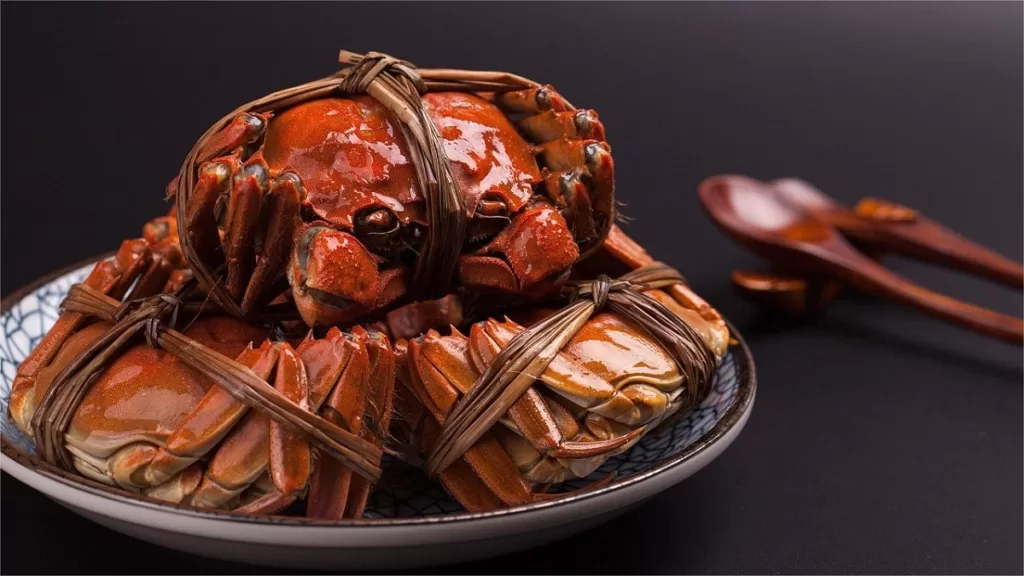Krabben aus dem Yangcheng-See - eine Delikatesse aus Chinas Kernland


Nestled in the picturesque landscape of Suzhou, China, lies a culinary treasure that has captivated the palates of gourmands and food enthusiasts for centuries – the Yangcheng Lake crab (阳澄湖大闸蟹). Renowned for its exquisite taste, tender flesh, and succulent texture, this delectable crustacean has earned a place of honor in Chinese gastronomy and cultural heritage.
Originating from the sprawling Yangcheng Lake, which is located to the northwest of Suzhou in the Jiangsu province, the Yangcheng Lake crab is celebrated as one of the finest crab varieties in the world. Its reputation is attributed not only to the pristine waters of the lake but also to the region’s unique climate, which provides an ideal environment for the crabs to thrive.
The Yangcheng Lake crab, scientifically known as “Eriocheir sinensis,” is often referred to as the “Chinese mitten crab” due to its distinctive hairy claws that resemble mittens. These crabs have a striking appearance, featuring a greenish-brown carapace and a cream-colored abdomen. The delicacy of their flavor and texture is a result of their diet, which mainly consists of plankton and small aquatic creatures found in the lake’s nutrient-rich waters.
The annual harvest of Yangcheng Lake crabs, which typically occurs during the autumn months, is a momentous occasion that draws both locals and visitors. The timing of the harvest is crucial, as it ensures that the crabs have reached a perfect balance of meatiness and fat content, making them exceptionally flavorful. Fishermen and crabbers employ traditional techniques to catch the crabs, using bamboo traps and nets that have been handed down through generations.
Cooking and savoring Yangcheng Lake crabs is an art form in itself. Steaming is the preferred method of preparation, as it preserves the delicate taste and texture of the crab’s meat. The crabs are often enjoyed plain, allowing their natural sweetness and briny essence to shine. Some culinary enthusiasts prefer dipping the succulent meat in a tangy ginger and vinegar sauce, enhancing the overall dining experience.
Beyond its culinary appeal, the Yangcheng Lake crab has entrenched itself in Chinese culture and tradition. The crab’s annual harvest coincides with the Mid-Autumn Festival, a time of reunion and thanksgiving. Families gather to feast on these delectable crustaceans, forging deeper connections and creating cherished memories.
However, the popularity of Yangcheng Lake crabs has also led to challenges in conservation and sustainability. Overfishing, pollution, and habitat destruction have threatened the delicate ecosystem of Yangcheng Lake, endangering the crab population. Efforts to protect and preserve the lake’s ecology are underway, with initiatives focused on responsible fishing practices and environmental conservation.
In conclusion, the Yangcheng Lake crab is a culinary jewel that embodies the rich history, culture, and flavors of Suzhou and China as a whole. Its unique taste, traditional harvesting methods, and cultural significance make it a symbol of gastronomic excellence. As we savor the delectable flesh of the Yangcheng Lake crab, we not only indulge in a gastronomic delight but also partake in a timeless tradition that connects us to the heart of Chinese heritage.